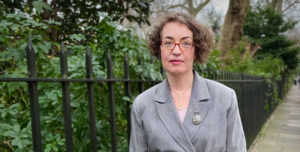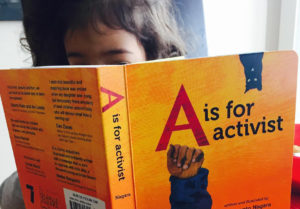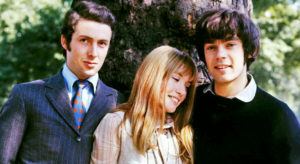You can read anything at the beach. I live in a seaside university town, and it’s not uncommon to see bikini-clad students devouring Crime and Punishment or Principles of Political Economics through sunglasses. Of course, this works the other way, too. The first time I read my undisputed beach favourite — the one that checks every breezy box associated with the genre — I was not lying on sand under a hot sun.
It must have been August, let’s say… 1980. The phrase “beach read” was a decade away from being coined (it only emerged as a marketing tool in 1990). I was 13, and had spent July at summer camp. While I was away, my uncle Ted — a writer who often received free books from publishers and newspapers — stayed in my room for a few days and left on my bedside table a copy of California Generation by Jacqueline Briskin. There is no way that Uncle Ted, who rightfully fancied himself an intellectual, read this novel before giving it to me. He probably glanced at the first page to see that it featured high-school students, and thought I might like it.
The cover promised “SUN, SIN, AND SEDUCTION”. And the back-cover blurb: “They’re the California Generation. The golden spoiled youth in a sun-drenched land of dreams — where the stars come out at night to see and be seen, where money, beauty, and sex pave the way to success, and where everyone hopes to ride off into the sunset…”
Briskin’s novel doesn’t disappoint: it delivers almost every kind of sex you can imagine — or, at least, every kind you could have imagined in 1980. But it’s more than just another bonkbuster (a portmanteau that was coined later, in 1989). There’s counter-culture rioting, lots of adultery, and several abortions. It also features a good deal of drugs, including an LSD trip where a dandelion communicates the secrets of the universe.
Did my parents object to me reading about such precocious topics? Did my father phone his brother to rebuke him for leaving wildly inappropriate material in my room? The answer to both questions is a resounding no.
My parents always let me read whatever I wanted. Our living room was lined with bookshelves containing everything from a complete collection of The World Book Encyclopedia to Fear of Flying, and I was free to help myself. Once, when I was staying at a friend’s house, her father caught us reading Judy Blume’s Forever. He roundly scolded us both (“You will not read this kind of trash in my house!”) before confiscating the book. I was fantastically jealous; it would have been much more fun to read Forever if I’d had to sneak around to do so.
With no such limits imposed upon me, I read all about SUN, SIN, AND SEDUCTION in plain sight — lounging in the living room, or on a chaise lounge in our backyard. I brought it to our country club to read on the pool’s dry deck, and I carried it to the dentist’s office and read it in the waiting room. I looked young, even for my age, so I’m sure I was met with disapproving and/or astonished stares as I flew through Briskin’s 534 steamy pages.
First published in 1970, California Generation begins on the eve of graduation for California High’s class of 1960, and follows several characters through that tumultuous decade. There’s a vacuous beauty queen who must get married when she gets pregnant before graduation, a movie star’s son who’s addicted to heroin, and a straight-laced social climber who’s “struggling with his own homosexuality” (thanks again, back-cover blurb).
Despite the sensational marketing, the novel intelligently depicts important events and topics of the era, including the civil rights movement, John F Kennedy’s presidency and the Vietnam war. All of the characters are what EM Forster himself would have called round: morally complex, with rich and vivid histories. As a teen, my favourite storyline was the romance between Ken, a Japanese-American artist and son of a gardener, and a rich white girl named Leigh.
But when I think of reasons to forbid my impressionable young self from reading this novel, Ken and Leigh rank chief among them. Theirs is a volatile relationship, and more than once Leigh bears bruises after their arguments. “Masochism’s a nasty habit,” Ken tells her, when she confesses she likes it when he hits her. Both characters are portrayed as highly sympathetic, and a sensitivity reader today might worry about communicating a harmful message.
If my mother had picked it up — which she may well have, noticing how many times I re-read it over the years — would she have become concerned about me romanticising a violent relationship? Doubtful. The only time I remember my parents being troubled about a book was years later, when I was 16 and engrossed with Jean Stein’s oral biography of the tragic Warhol muse, Edie Sedgwick. Even then, my father didn’t tell me to stop reading it. He just explained he was worried I seemed to relate to such a troubled young woman, and asked if I wanted to speak to a therapist. I said, “No, thank you” — and went back to reading.
As a parent, I hewed to the philosophy I was raised on, and always let my daughter read anything she chose. She never picked up California Generation, but if she had, I might have initiated a conversation about many of the attitudes in the book, including the dated psychological analysis of the gay character, Marshall. But I also trust that my child has the ability — and the well-developed prior knowledge — to discard whatever wrongheaded or antiquated attitudes may be embedded within any novel’s pages. I trust her instincts and intelligence, and her ability to interact with a text, rather than adopt it as gospel.
It never would have occurred to my parents that a book might be a brainwashing device. On those living room shelves, they had both testaments of The Bible, as well as William Peter Blatty’s The Exorcist (the mere title terrified me so much that I used to turn it around, spine facing inward). They also had a copy of Mein Kampf — not because they didn’t find its ideas abhorrent, of course they did; my father’s father died fighting in the Free French Airforce, and my mother is Jewish — but because they believed in the written word as a record of history, and that both the good and the evil were worthy of examination.
The eclectic breadth of my parents’ library, their utter lack of censorship and the conversations I heard them having about books gave me the freedom to retain my own mind, no matter what ideas I encountered on the page. Stories and characters, whether fictional or nonfictional, were never credo, but fodder for my own imagination and burgeoning teenage intellect.
Several years ago, a friend of mine house-sat for me with her teenage girls, who stayed for a few weeks in my daughter’s bedroom. My friend is a stricter mother than I, and had forbidden her 12-year-old from reading John Greene’s The Fault in Our Stars. When I got home and changed the sheets on my daughter’s bed, I found that very book wedged between the mattress and box spring. Did I rat the girl out to her mother? Of course not. Instead, I laughed, and slid it onto my daughter’s bookshelf, where she could find it any time she might want it.
The thing about books that contain adult content is that they also contain adult ideas. The best ones do not telegraph moral messages. At 13, while being thoroughly entertained by Briskin’s just-salacious-enough storylines, I was also learning about the sexual revolution, and the history of birth control and the evolution of the very ideas that may have led to my parents being so permissive about reading material.
Surely, in this age of TikTok and unfettered internet access, there’s much to appreciate about first encountering adult material in the form of words, rather than video clips. And, unlike your average influencer, a novel will never tell you what to think. In this age of memorising hashtags and calling them opinions, what better exercise for young minds to get lost in stories from which they must draw their own conclusions, and develop their own ideas?
Disclaimer
Some of the posts we share are controversial and we do not necessarily agree with them in the whole extend. Sometimes we agree with the content or part of it but we do not agree with the narration or language. Nevertheless we find them somehow interesting, valuable and/or informative or we share them, because we strongly believe in freedom of speech, free press and journalism. We strongly encourage you to have a critical approach to all the content, do your own research and analysis to build your own opinion.
We would be glad to have your feedback.
Source: UnHerd Read the original article here: https://unherd.com/




